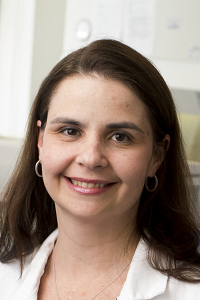The Rockefeller University Hospital
The Rockefeller University Hospital is a vital link in the translational pipeline. Devoted entirely to research, the hospital provides critical expertise, personnel, and programs to help Rockefeller scientists through every stage of clinical investigations, from establishing patient protocols to conducting Phase I and Phase II clinical trials.
Barry Coller, M.D., is Physician-in-Chief of the hospital and the university’s Vice President for Medical Affairs. Dr. Coller has streamlined the process by which basic scientists can take their work in a clinical direction. He has assembled a team of highly skilled professionals and built a robust infrastructure to support the initiation and successful completion of rigorous patient-oriented studies, including support for protocol development, statistical and bioinformatics analysis, and matching of laboratories with Clinical Scholars who can help conduct clinical studies.
A nationally recognized Translational Navigation Program supports the conduct of clinical studies at the highest levels of scientific quality, bioethics, and safety. This suite of services is crucial for the rapid translation of discoveries into new drugs.
The current scope of patient-based studies at the Rockefeller hospital encompasses a broad range of subjects including cancer, diabetes, obesity and weight loss, heart disease, hepatitis, HIV/AIDS, blood disorders, neurological disorders, psoriasis, and COVID-19.
The most influential clinical research is bi-directional: Studying the causes of a disease in human subjects can lead to essential discoveries in fundamental biology, while research on biological structures and systems will often reveal targets for intervention in disease.
Learn more about clinical research at The Rockefeller University Hospital.

Marina Caskey, M.D.
Laboratory of Molecular Immunology
“Our group benefits from the nimble structure of Rockefeller’s research-focused hospital, which allows open collaboration between the different hospital departments and our clinical team during protocol development and implementation. This ensures that our experimental medicine protocols are launched and executed in an expeditious manner.”